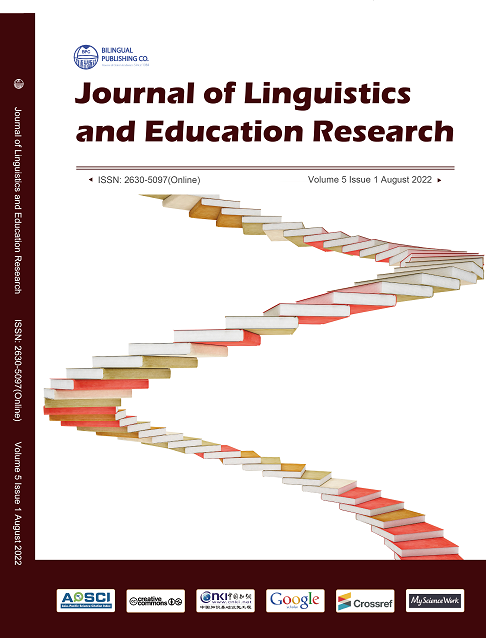A study of post modernist Parody in Guoman films ——Take one hundred thousand cold jokes as an example
DOI:
https://doi.org/10.30564/jler.v4i1.2664Abstract
parody is the expression of postmodernism, which makes use of the similarity between texts to ridicule and parody the original classic texts. The creation method of parody makes the works have a brand-new character image and space-time experience, subverts and reconstructs the characters in the source text, makes the new characters abandon the constraints, and endows the characters with independent spirit and comic effect. "100000 cold jokes" is a typical parody and collage animation. Even any picture and lens are created by the innovation of other classic text elements. This paper mainly takes "100000 cold jokes" as the main case of parody, focusing on the analysis of the performance of Parody in "100000 cold jokes", and explores the artistic characteristics of Parody in animation. Dialectically treat parody animation creation, praise positive and beneficial content, identify vulgar parody animation. Finally, the conclusion is that parody animation works have artistic and cultural value, which can effectively enhance the vitality of domestic animation industry and promote mass entertainment.
Keywords:
Postmodernism; parody; animation; 100000 cold jokesReferences
[1] Gérard Genette: Palimpsestes. Paris 1982.
[2] [France] thifena samowayo, intertextuality research, translated by Shao Wei, Tianjin People's publishing house, 2003 edition, P. 20.
[3] Christiva, Julia. Analysis of semiotic meaning. Shanghai Literature and Art Press, 1993.
[4] Li Tao. Research on the animation image of the United States and Japan in the past century [D]. Sichuan University, 2007
[5] [add] Linda harqin: Postmodern Poetics: history, theory and fiction. Translated by Li Yang and Li Feng, Jiangsu: Nanjing University Press, 2009 edition.
[6] Consumption culture and postmodernism by Michael Featherstone, translated by Liu Jianming, Nanjing: Yilin publishing house, 2002, P. 19
[7] Jean Francois Lyotard. Postmodern state [M]. Nanjing: Nanjing University Press, 2011:4
[8] Introduction to cultural theory and popular culture [M], trans. Chang Jiang, Beijing: Peking University Press, 2010, P. 251
[9] Karinescu. Five faces of modernity [M]. Beijing: Commercial Press, 2002
[10] Michelle de Seto. Everyday life practice [M]. Nanjing: Nanjing University Press, 2009:33
[11] Linda Hutcheon: A Theory of Parody:The Teachings of Twentieth-Century Art Forms, Urbana and Chicago: University of Illinois Press,p32,2000.
[12] Theory of prose [M]. BaiHuaZhou literature and Art Press, 1997
[13] Henry Jenkins. Text poachers: TV fans and participatory culture [M]. Beijing: Peking University Press, 2016:6-23
[14] Bakhtin, complete works of Bakhtin (Volume 3). Shijiazhuang: Hebei Education Press, 1998
[15] Linda Hutcheon. A Poetics of Postmodernism: History,Theory,Fiction. New York and London:Routelege ,1988.
[16] Jameson, Frederick. Cultural turn. Trans. Hu Yamin et al. Beijing: China Social Sciences Press, 2000
Downloads
How to Cite
Issue
Article Type
Downloads
License
Copyright © 2021 Lan Chao Huang

This is an open access article under the Creative Commons Attribution-NonCommercial 4.0 International (CC BY-NC 4.0) License.




 Focus and Scope
Focus and Scope Lan Chao Huang
Lan Chao Huang

